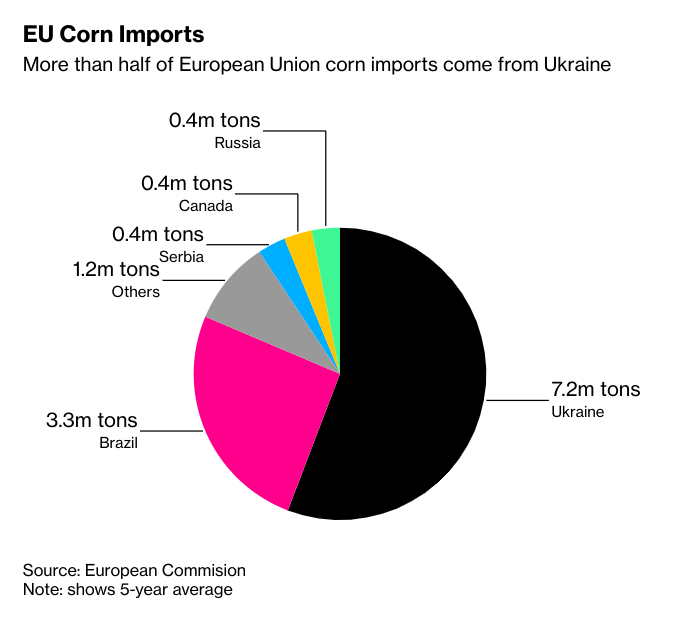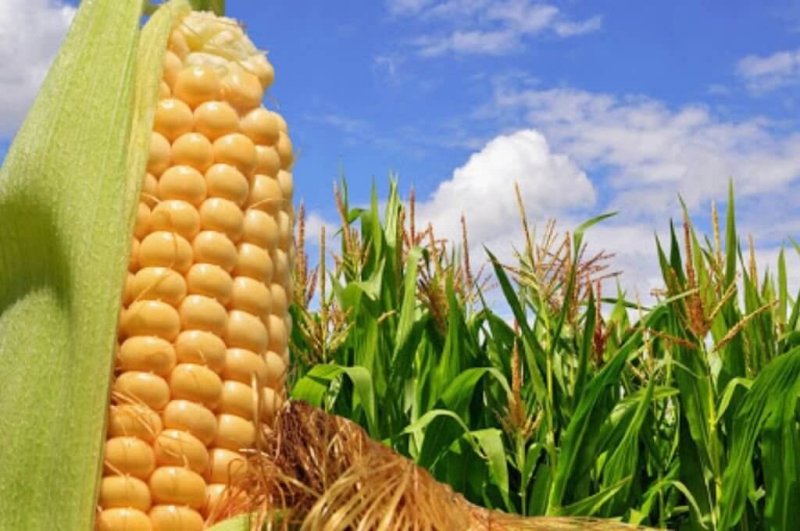European farmers are set to buy more genetically modified animal feed from the U.S. and South America after Russia’s invasion cut off corn shipments from Ukraine.
The war in Ukraine is already pushing companies to turn to alternatives to sunflower oil, and that shift in trade flows is also likely to include corn, which is mainly used as animal feed. Ukraine’s non-GM corn accounts for about half the European Union’s imports.
While companies in the EU don’t have to label meat or products from animals fed GM crops, over the past decade, consumer demand has increased for dairy produce from cows fed with the non-GM variety.
As the EU shifts to shoring up food security, it’s relaxing import rules. In Spain, which is expecting corn shipments from the U.S., Argentina and Brazil over the next two weeks, the government is temporarily allowing imports with traces of pesticides to compensate for the loss of Ukraine output.
…
The price of corn and other grains have surged in the wake of Russia’s invasion. Ukraine had exported about 6.6 million tons of corn to the EU by the end of March, compared with a five-year average of 7.2 million tons.
































